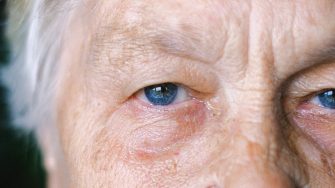
The Centre for Eye Health (CFEH) is currently running research projects in four main research areas: glaucoma, age related macular degeneration and collaborative eye care.
We are currently considering:
- PhD projects
- MPhil projects
- Honours projects
- Independent learning projects (medicine)
- Final year optometry student projects
Project applications are reviewed by a committee consisting of representatives from Centre for Eye Health, UNSW, and Guide Dogs NSW/ACT, and are subject to approval.
If you would like to discuss specific projects, please contact Sarah Holland.
Research areas
Glaucoma focused research projects
Glaucoma is a leading cause of blindness in the developed world. It is caused by the death of retinal ganglion cells, and intraocular pressure (IOP) is the major modifiable risk factor. Clinical assessment of this disease requires observation of structural changes in a patient’s retina, and repeatable functional deficits in a patient's visual field results. Often, structural and functional changes don’t concur. The difficulty of detecting and diagnosing glaucoma may explain why up to 50% of glaucoma patients remain undiagnosed.
Our research looks for patterns and factors which can be used to improve clinical diagnosis and progression of glaucoma. Our current research projects include:
- Developing new structure and function tests for glaucoma.
- Developing new methods to correlate structure and function results in glaucoma.
- Assessing the effects of various clinical parameters to better predict glaucoma.
Age related macular degeneration (AMD) focused research projects
Age related macular degeneration (AMD) is a leading cause of central vision loss. Although therapeutics are available for neovascular (wet) AMD, there is no effective treatment for the more common, non-neovascular (dry) AMD. Considering AMD is projected to affect 288 million people by 2040, early detection is a key preventative strategy.
Our research looks at improving detection and diagnosis of the early stages of the disease to prevent vision loss. Our current research projects include:
- Detecting new markers for AMD using advanced imaging.
- Developing new functional tests for AMD.
- Using computer analysis and AI to automatically assess AMD and predict progression.
Collaborative care focused research projects
Many eye diseases require the involvement of multiple healthcare providers; however, current health system inefficiencies mean that many patients do not receive quality and timely care. This can result in unnecessary vision loss for patients.
Our research looks at models of collaborative care and how to best assess and implement them. We focus on several systemic related eye diseases and conditions, including diabetic retinopathy and low vision. Our current research projects include:
- Assessing collaborative eye care models that help reduce burden on public hospitals.
- Assessment of methods for ensuring patients with low risk eye disease to those with severe disease and vision loss receive appropriate care.
- Finding tools to better engage with patients and healthcare providers such as virtual reality.
